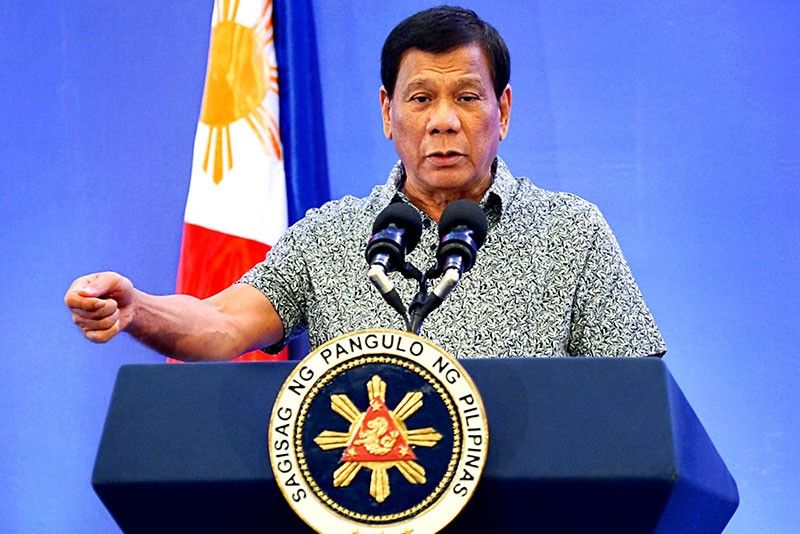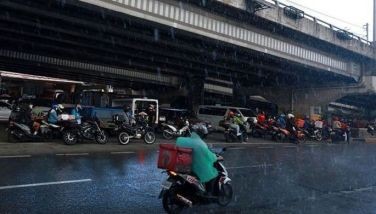UN rapporteur in Manila for drug policy meet

MANILA, Philippines - United Nations special rapporteur on extrajudicial killings Agnes Callamard is in the country to attend a conference on drug policy at the University of the Philippines today.
Callamard attended the commemoration of the 30th anniversary of the Commission on Human Rights (CHR) last night at its central office in Quezon City.
Callamard, a vocal critic of the Duterte administration’s war on drugs, declined to grant media interviews.
Her arrival puts her motives and sincerity in “question” especially since the Philippines’ human rights records will be reviewed next week in Geneva when the country appears for the Human Rights Council’s Universal Periodic Review, the Department of Foreign Affairs said yesterday.
The UN Office of the High Commissioner for Human Rights said Callamard is currently in Manila to attend a number of events and academic engagements but not on official mission.
“However, this is not an official mission in her capacity as the Special Rapporteur on extrajudicial summary or arbitrary executions,” the OHCHR said.
The Philippine government earlier invited the UN official to conduct an investigation on the alleged human rights violations committed in connection with the drug war.
The investigation, however, has yet to push through after the Philippine government set conditions for her visit, including being questioned under oath by President Duterte.
Aware that Callamard is in the country, Duterte stressed his mission against illegal drugs.
He justified his order for local officials to help him in the war against illegal drugs.
“And here’s the shocker: I will kill you. I will really kill you. And that’s why the rapporteur of the UN is here, investigating extrajudicial killing,” Duterte told a gathering of orthopedic surgeons in Davao City.
Duterte said he had warned local officials in separate closed-door meetings in Malacañang late last year that he will kill them if they get involved in illegal drugs or if they fail in the anti-drug campaign.
“I told them that once you get involved in drugs I will kill you. I will ambush you, poison you, bomb you, whatever. Steal your wife from you,” Duterte told the crowd.
“If you want to remain in your (posts) between now until election time – do not do it,” Duterte said.
Last year, Duterte invited the UN rapporteur to come to the country and get a real grasp of the drug problem here. But Callamard rejected the conditions set by Duterte, who challenged her to a public debate.
Callamard maintained the process is inconsistent with the terms of reference and the code of conduct for special rapporteurs.
Instead, she urged the government to reconsider its demands and allow her to investigate the alleged extrajudicial killings in the country.
Callamard is set to attend a conference on drug policy organized by the Free Legal Assistance Group (FLAG), a group of lawyers handling various human rights cases in the country.
FLAG also represents retired policeman Arturo Lascañas, who recently tagged Duterte in the supposed existence of the infamous Davao death squad.
Human rights review
On the other hand, international rights advocates called on member countries of the UN to denounce the Philippines’ brutal war on drugs that has left more than 7,000 people dead since Duterte took office in June last year.
“UN member countries should urge the Philippines to support an international investigation into the killings, given the Philippine government’s own failure to impartially investigate or prosecute those responsible,” Human Rights Watch (HRW) said.
The Philippines will appear for the third cycle of the Human Rights Council’s Universal Periodic Review (UPR) on May 8 in Geneva, Switzerland.
HRW, various UN bodies, the media and other nongovernmental organizations have reported the massive summary killings of suspected drug offenders and criminals, which they said could amount to crimes against humanity.
“The UN review of the Philippines is critical because of the sheer magnitude of the human rights calamity since President Duterte took office last year. Duterte’s ‘war on drugs’ has been nothing less than a murderous war on the poor,” said Phelim Kine, deputy Asia director at HRW.
“At the UPR, the human rights progress of each UN member country is reviewed every four years,” he said.
Kine said members and observers of the UN Human Rights Council could raise the Philippines’ past human rights pledges and new concerns.
“The previous reviews of the Philippines were in 2008 and 2012. This year’s review covers the last four years of the administration of president Benigno Aquino III and the period since Duterte took office,” Kine added.
Duterte yesterday said he takes responsibility for all the killings, but only those carried in accordance with his lawful orders.
“So I take full responsibility for the killings of the soldiers and the policemen. I take full responsibility, if it says 10,000, then that’s mine and mine alone,” Duterte said.
“But for all the killings that were in accordance with my order and something was done excessively wrong, something went very wrong, I will answer for it,” he added.
Duterte assured the lawmen that he would take responsibility for the said killings.
“Do not worry. I will answer for it. And if I go to hell I will do it. If I will rot in jail, I will be happy to do so, at least I have done something for my country,” he said.
The Philippines is one of 14 countries whose records are being examined in the UPR. The process looks into the human rights records of all 193-member states of the UN.
The Philippine government’s anti-illegal drugs campaign and the proposals to restore the death penalty are among the issues up for discussion.
The Philippine government has sent a delegation to Geneva to face questions regarding complaints of human rights violations in the country during the UN review.
Immediately after the UN review of the Philippines on May 8, HRW will moderate a side event in Geneva, co-hosted with other NGOs, to assess the review and the Philippine delegation’s responses. This event will take place in room XXIII of the Palais des Nations in Geneva.
HRW, in its UPR submission in September 2016, highlighted some of the human rights problems that included the summary killings in the Philippines. - AP
- Latest
- Trending































